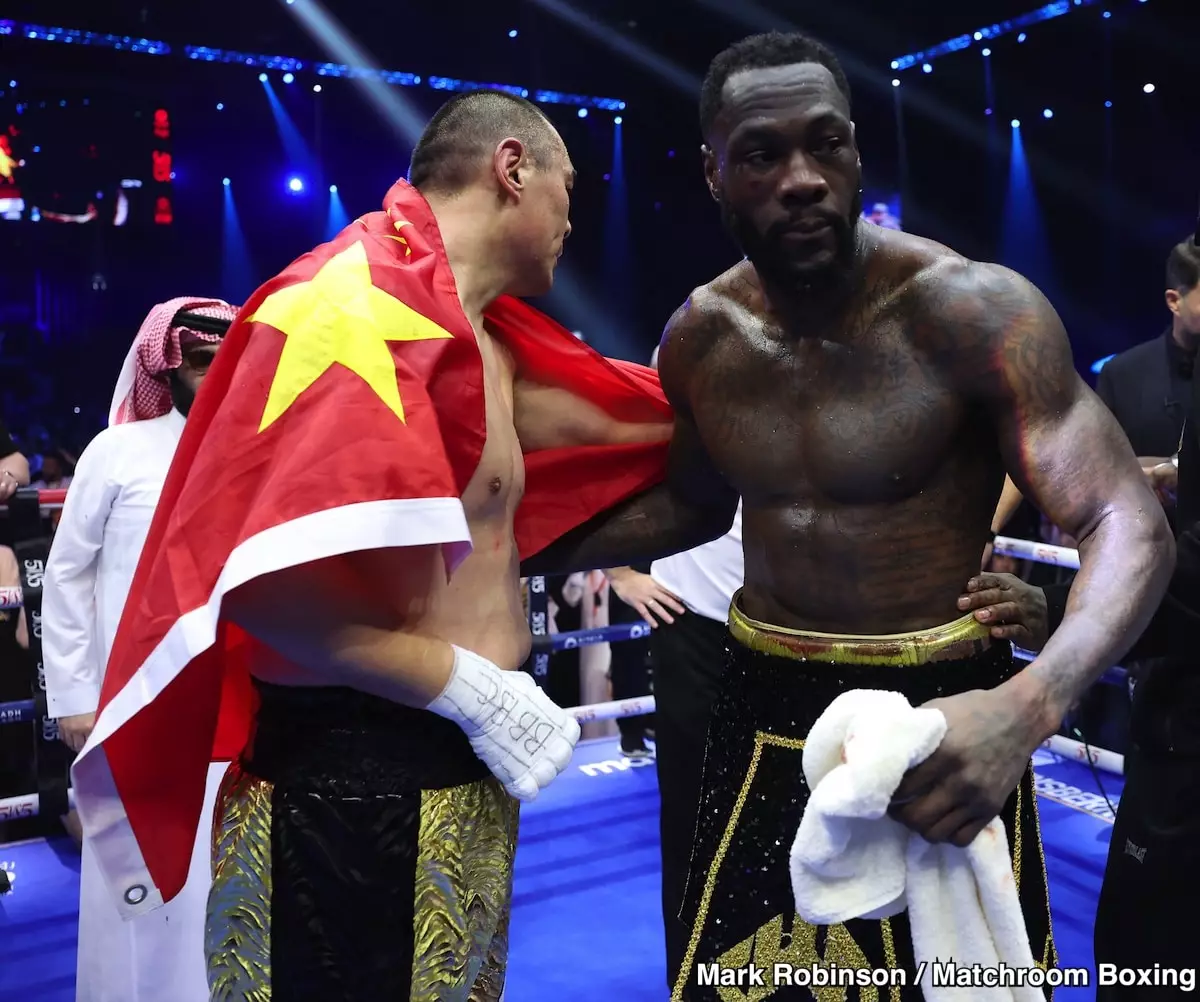Deontay Wilder, the once dominant WBC heavyweight champion, finds himself at a crossroads following two consecutive defeats, first to Joseph Parker and subsequently to Zhilei Zhang. Critics are keenly urging the 39-year-old to hang up his gloves and retire, yet Wilder remains resolute, insisting that “the best is yet to come.” This statement can be interpreted as bravado or a genuine belief in his potential for a comeback; regardless, it certainly keeps fans intrigued about his future in the ring.
Wilder’s recent interviews reveal an athlete keenly aware of the stakes involved. Speaking candidly at LAX, he acknowledged the pressure weighing upon him, not just from external sources, but from within himself. Acknowledging his physical trials, he mentioned a serious injury — a broken arm and shoulder tears — that he had initially downplayed. This raises questions about his decision-making and how it may have influenced his performance during fights. King of the knockout, Wilder’s unique style had elevated him to the pinnacle of professional boxing, making it difficult for fans to accept his recent losses.
Wilder reflects a certain tenacity often found in athletes who find themselves faced with adversity. He claimed he is still in training and ready to fight, expressing optimism that despite physical setbacks, a “new” Wilder could emerge from the shadows of his past. One potential match against Francis Ngannou has caught the attention of boxing fans worldwide. Why the interest in Ngannou? Unlike Wilder, Ngannou’s background in mixed martial arts presents a different set of challenges. This potential collision of styles promises a captivating showdown, as both athletes bring their unique strengths to the table.
The prospect of a Wilder-Ngannou bout is not merely wishful thinking; it could be a tactical move for both fighters to carve a new narrative in their careers. With Wilder mentioning a plethora of offers from various countries, it’s clear that interest in his return remains high. As he reaches out to Ngannou, it reveals both respect and a willingness to rise to the challenge. This openness to negotiations could indicate a shift in his mindset, illustrating that he is not simply clinging to the past, but rather eager to explore new horizons in his fighting career.
Wilder’s acknowledgment of the competitive nature of boxing speaks volumes about his sportsmanship. “Any fight is competitive,” he stated, highlighting a deep respect for every opponent who steps into the ring. This regard, however, opens the door to questions about his own readiness to face new challengers. The heavyweight division remains fiercely competitive, with many rising stars looking to etch their names into the legacy of boxing. Does Wilder have the grit and determination to maintain his status among them? Only time will tell.
As Wilder stands at this pivotal juncture in his career, his future hangs delicately in the balance. Will he take the chance to redefine his legacy, or will the ring lights dim for good? The landscape of boxing is ever-evolving, and the narrative of Deontay Wilder is far from over. As fans, we are left to contemplate not just the skill in his fists but the resilience of his spirit. Will 2024 be the year that Wilder reignites the flame of his legendary status, or will he slip quietly out of the sporting limelight? It’s a gripping story worth watching unfold.

